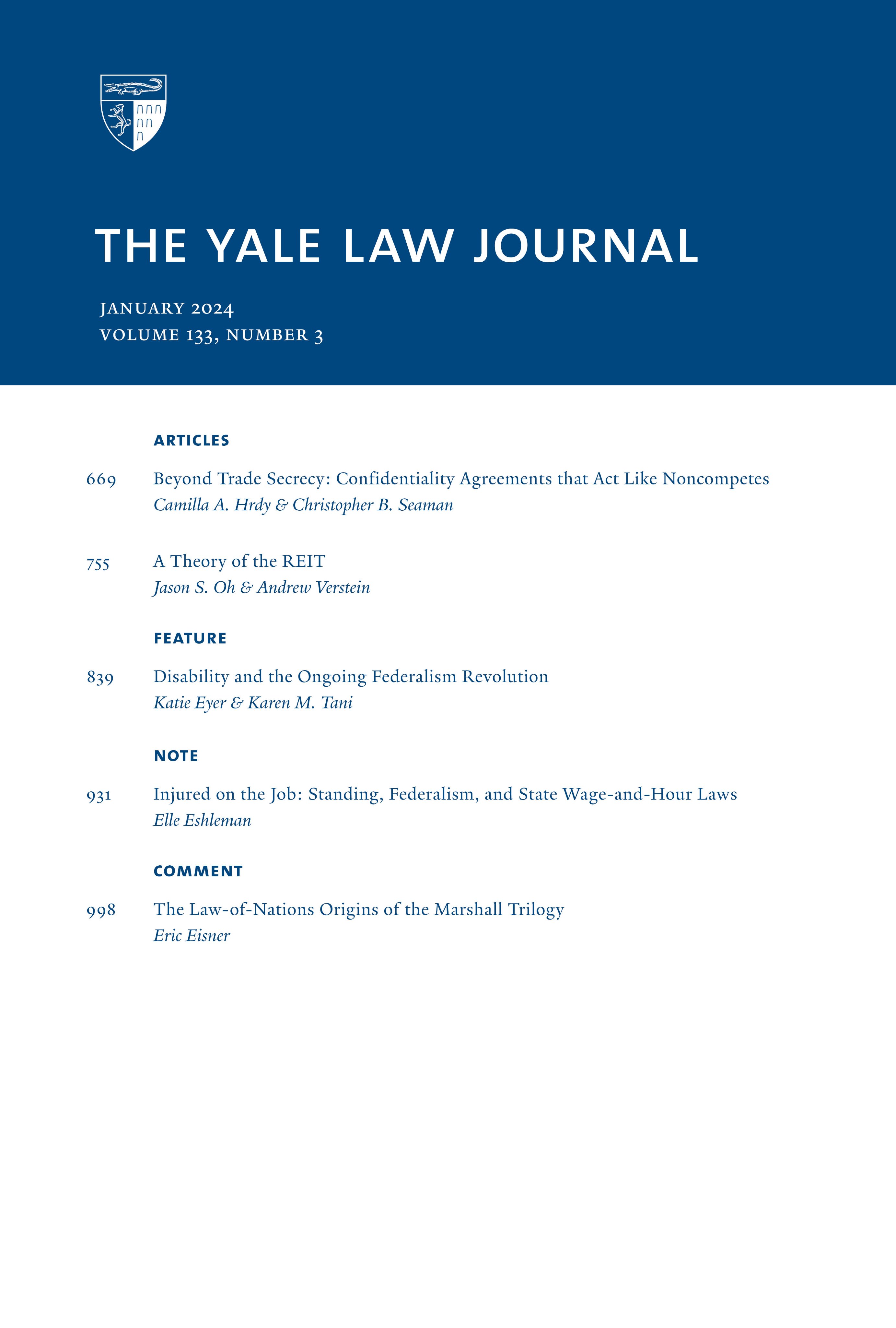Prosecuting Corporate Crime When Firms Are Too Big to Jail: Investigation, Deterrence, and Judicial Review
IF 5.2
1区 社会学
Q1 LAW
引用次数: 11
Abstract
Some corporations have become so large or so systemically important that when they violate the law, the government cannot credibly threaten “efficient” criminal sanctions. By introducing political economy constraints into a standard microeconomic model of corporate liability, this Note shows how this Too Big to Jail (TBTJ) problem reduces prosecutors’ ability to deter corporate crime by simply fining a defendant corporation without the accompanying prosecution of culpable individuals and mandatory structural reforms. This Note further illustrates how the risk of corporate criminal liability alone cannot incentivize a TBTJ firm to invest in internal controls or cooperate with government investigations. To deter criminality by TBTJ firms, prosecutorial strategy should credibly threaten culpable managers with monetary and nonmonetary penalties, and not unduly rely on corporate defendants’ cooperation. The Note also advances a structural explanation for the dearth of individual prosecutions relative to negotiated criminal settlements with TBTJ companies: prosecutors currently rely on an intrafirm apparatus for investigation that may produce information necessary for corporate settlements but will not reliably produce evidence to charge culpable individuals. In response, this Note proposes enlisting the courts as a bulwark against these structural incentives for prosecutors to agree to large corporate settlements without insisting on comprehensive investigation of underlying individual culpability. Thus, I present a legislative reform that authorizes judicial review of deferred prosecution agreements to ensure prosecutors have collected sufficient evidence prior to finalizing corporate settlements.当公司太大而不能入狱时起诉公司犯罪:调查、威慑和司法审查
一些公司已经变得如此庞大或如此具有系统重要性,以至于当它们违反法律时,政府无法可信地威胁要对它们实施“有效的”刑事制裁。通过将政治经济学约束引入企业责任的标准微观经济模型,本文展示了TBTJ问题如何通过简单地对被告公司进行罚款而不附带对有罪个人的起诉和强制性结构改革来降低检察官阻止企业犯罪的能力。本说明进一步说明,仅凭企业刑事责任风险无法激励TBTJ公司投资于内部控制或配合政府调查。为了阻止TBTJ公司的犯罪行为,起诉策略应该以金钱和非金钱惩罚来威胁有罪的经理,而不是过度依赖公司被告的合作。《说明》还对缺乏与TBTJ公司谈判达成刑事和解相关的个人起诉提出了结构性解释:检察官目前依靠公司内部机构进行调查,该机构可能提供公司和解所需的信息,但无法可靠地提供起诉有罪个人的证据。作为回应,本说明建议将法院作为壁垒,防止这些结构性激励促使检察官在不坚持对潜在个人罪责进行全面调查的情况下,同意与大型企业达成和解。因此,我提出一项立法改革,授权对推迟起诉协议进行司法审查,以确保检察官在最终确定公司和解之前收集了足够的证据。
本文章由计算机程序翻译,如有差异,请以英文原文为准。
求助全文
约1分钟内获得全文
求助全文
来源期刊

Yale Law Journal
LAW-
CiteScore
4.50
自引率
6.20%
发文量
0
期刊介绍:
The Yale Law Journal Online is the online companion to The Yale Law Journal. It replaces The Pocket Part, which was the first such companion to be published by a leading law review. YLJ Online will continue The Pocket Part"s mission of augmenting the scholarship printed in The Yale Law Journal by providing original Essays, legal commentaries, responses to articles printed in the Journal, podcast and iTunes University recordings of various pieces, and other works by both established and emerging academics and practitioners.
 求助内容:
求助内容: 应助结果提醒方式:
应助结果提醒方式:


